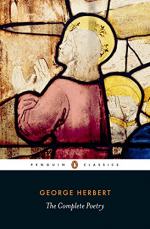|
This section contains 836 words (approx. 3 pages at 400 words per page) |

|
Summary
The speaker begins by asking why people believe that only elaborate lies belong in poetry. He argues that there is "beauty" in "truth" (2). Poetry should not have to focus on telling beautiful falsehoods.
He compares poetry to "enchanted groves" – beautiful, but not real (6). He asks whether it is necessary for the truth to be "veiled," or partially concealed (9). Poetry, he argues, often keeps the reader at "two removes" from the truth, using complex language to conceal its meaning (10).
He ends by arguing that "honest people" – common folk, like "shepherds" – should be taken at least as seriously as poets (11). Their praises are as valuable as any that are written more elaborately, especially when they sing in praise of God.
Analysis
Poets have long taken poetry itself as one of their primary subjects. Many defenses of poetry, or odes in honor of creative work, have become...
(read more from the Lines 1 – 15 Summary)
|
This section contains 836 words (approx. 3 pages at 400 words per page) |

|




